Going from 49kB of transient program area to 60kB took only a single NAND chip, in this interesting experiment in vintage bank-switching.
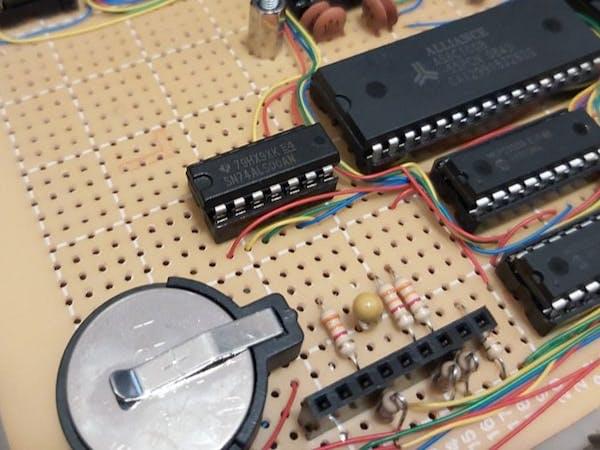

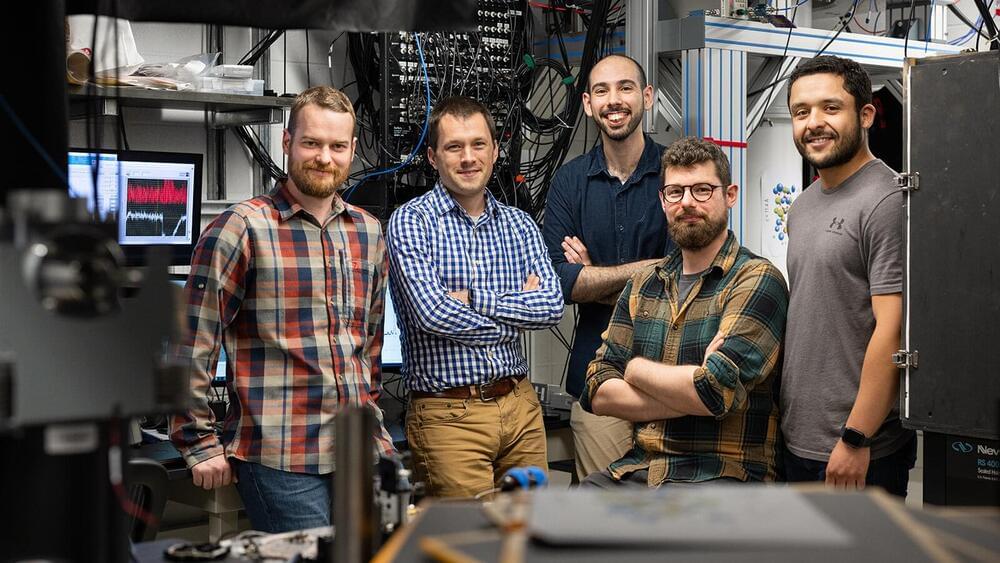
Researchers have a new way to connect quantum devices over long distances, a necessary step toward allowing the technology to play a role in future communications systems.
While today’s classical data signals can get amplified across a city or an ocean, quantum signals cannot. They must be repeated in intervals—that is, stopped, copied and passed on by specialized machines called quantum repeaters. Many experts believe these quantum repeaters will play a key role in future communication networks, allowing enhanced security and enabling connections between remote quantum computers.
A new Princeton study titled “Indistinguishable telecom band photons from a single erbium ion in the solid state” and published Aug. 30 in Nature, details the basis for a new approach to building quantum repeaters. It sends telecom-ready light emitted from a single ion implanted in a crystal. The effort was many years in the making, according to Jeff Thompson, the study’s principal author. The work combined advances in photonic design and materials science.
New research may lead to highly precise, power-efficient light measurement tools, driving advancements in various technology fields.
Researchers have discovered a way to improve optical frequency combs to measure light waves with much higher precision than previously accomplished. This could lead to the development and improvement of devices that require such precision, like atomic clocks. The researchers showed that dissipative Kerr solitons (DKSs) can create chip-based optical frequency combs with enough output power for use in optical atomic clocks and other practical applications.
N. Phillips/NIST/Wikimedia Commons.
More precise clocks.

Security Enhanced Linux (SELinux) has been part of the mainline kernel for two decades to provide a security module implementing access control security policies and is now widely-used for enhancing the security of production Linux servers and other systems. Those that haven’t been involved with Linux for a long time may be unaware that SELinux originates from the US National Security Agency (NSA). But now with Linux 6.6 the NSA references are being removed.
The United States National Security Agency worked on the original code around Security Enhanced Linux and was the primary original developer. The NSA has continued to contribute to SELinux over the years while with its increased adoption does see contributions from a wide range of individuals and organizations.
Michael Levin is a Distinguished Professor in the Biology department at Tufts University. He holds the Vannevar Bush endowed Chair and serves as director of the Allen Discovery Center at Tufts and the Tufts Center for Regenerative and Developmental Biology. To explore the algorithms by which the biological world implemented complex adaptive behavior, he got dual B.S. degrees, in CS and in Biology and then received a PhD from Harvard University. He did post-doctoral training at Harvard Medical School, where he began to uncover a new bioelectric language by which cells coordinate their activity during embryogenesis. The Levin Lab works at the intersection of developmental biology, artificial life, bioengineering, synthetic morphology, and cognitive science.
✅EPISODE LINKS:
👉Round 1: https://youtu.be/v6gp-ORTBlU
👉Mike’s Website: https://drmichaellevin.org/
👉New Website: https://thoughtforms.life.
👉Mike’s Twitter: https://twitter.com/drmichaellevin.
👉Mike’s YouTube: https://youtube.com/@drmichaellevin.
👉Mike’s Publications: https://tinyurl.com/yc388vvk.
👉The Well: https://www.youtube.com/watch?v=0a3xg4M9Oa8 & https://youtu.be/XHMyKOpiYjk.
👉Aeon Essays: https://aeon.co/users/michael-levin.
✅TIMESTAMPS:
0:00 – Introduction.
1:27 – The Prisoner’s Dilemma (Game Theory applied to Life)
7:55 – Computational Boundary of the Self.
10:17 – “Goal States” & “Cognitive Light Cones”
13:55 – To Naturalise Cognition.
19:00 – The Hard Problem of Consciousness.
23:10 – Defining Consciousness.
27:14 – The Field of Diverse Intelligence.
43:25 – Who inspired Mike within his field.
46:52 – Is Mike a Panpsychist?
52:09 – Thoughts on Illusionism.
55:44 – Links to IIT
57:56 – Technological Approach to Mind Everywhere (TAME 2.0)
1:02:14 – Proof of Humanity Certification.
1:10:00 – Phase Transitions in Mathematics.
1:15:26 – Bioelectric Medicine.
1:21:06 – Can Cells Think? What is the Self? Is Man a Machine?
1:28:55 – Metacognition & Cloning.
1:35:49 – Teleology, Teleonomy & Teleophobia.
1:50:08 – All Intelligence is Collective Intelligence.
1:54:33 — Conclusion.
Video Title: What is The Field of Diverse Intelligence? Hacking the Spectrum of Mind & Matter | Michael Levin.
🔔Ready to change the way you think about the mind-body dichotomy? Join Dr. Tevin Naidu on a quest to conquer the mind-body problem. Subscribe and take one step closer to the Mind-Body Solution: https://t.ly/ASNw6
⭐ ⭐ ⭐ ⭐ ⭐ Audio Podcast is currently on your favorite platforms:

For millions of Chinese people, the first software they download on a new laptop or smartphone is always the same: a keyboard app. Yet few of them are aware that it may make everything they type vulnerable to spying eyes.
Since dozens of Chinese characters can share the same latinized phonetic spelling, the ordinary QWERTY keyboard alone is incredibly inefficient. A smart, localized keyboard app can save a lot of time and frustration by predicting the characters and words a user wants to type. Today, over 800 million Chinese people use third-party keyboard apps on their PCs, laptops, and mobile phones.

Being able to vocalize is one of the most essential elements of the human experience, with infants expected to start babbling their first words before they’re one year old, and much of their further life revolving around interacting with others using vocalizations involving varying degrees of vocabulary and fluency. This makes the impairment or loss of this ability difficult to devastating, as is the case with locked-in syndrome (LIS), amyotrophic lateral sclerosis (ALS) and similar conditions, where talking and vocalizing has or will become impossible.
In a number of concurrent studies, the use of a brain-computer interface (BCI) is investigated to help patients suffering from LIS (Sean L. Metzger et al., 2023) and ALS (Francis R. Willett et al., 2023) to regain their speaking voice. Using the surgically implanted microelectrode arrays (Utah arrays) electrical impulses pertaining to the patient’s muscles involved in speaking are recorded and mapped to phonemes, which are the elements that make up speech. Each of these phonemes requires a specific configuration of the muscles of the vocal tract (e.g. lips, tongue, jaw and larynx), which can be measured with a fair degree of accuracy.
In the case of the study by Sean L. Metzger et al. as recently published in Nature, the accompanying research article on the University of California San Francisco website details the story of their patient: Ann. At the age of 30, Ann suffered a brainstem stroke which rendered her essentially fully paralyzed. As an LIS patient she lacked for a long time even the ability to move her facial muscles.
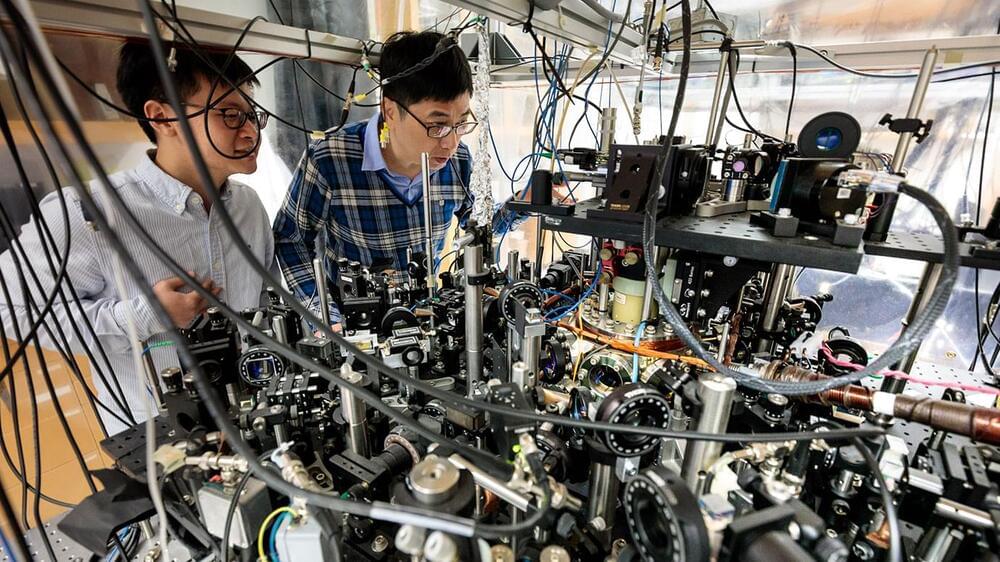
A team from the University of Chicago has announced the first evidence for “quantum superchemistry” – a phenomenon where particles in the same quantum state undergo collective accelerated reactions. The effect had been predicted, but never observed in the laboratory.
The findings, published July 24 in Nature Physics, open the door to a new field. Scientists are intensely interested in what are known as “quantum-enhanced” chemical reactions, which could have applications in quantum chemistry, quantum computing, and other technologies, as well as in better understanding the laws of the universe.
Breakthrough could point way to fundamental insights, new technology.
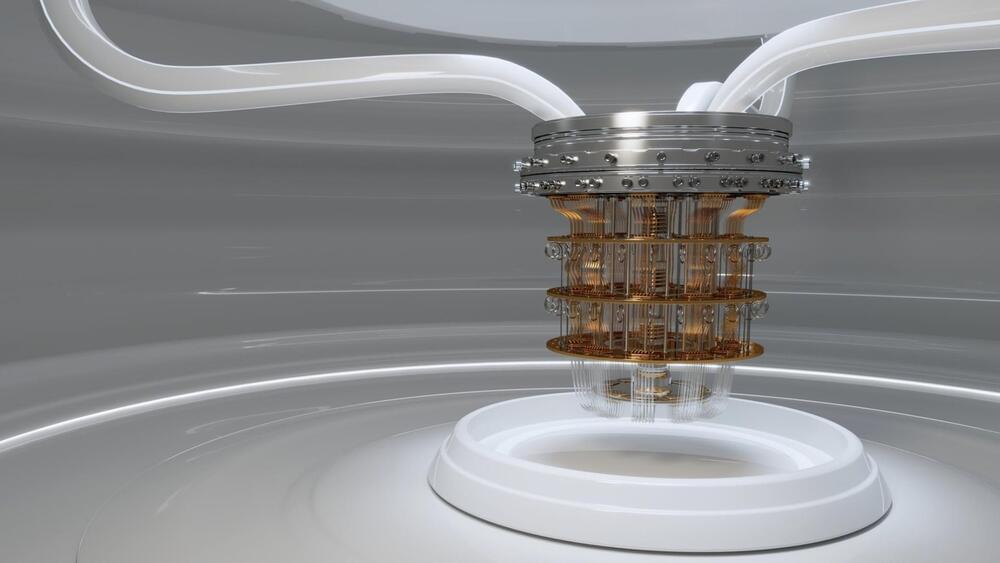
A new study discusses how high-fidelity quantum information could be sent through fiber optic networks by a novel atomic device.
Did you know quantum transmissions can’t be amplified over a city or an ocean like conventional data signals? Instead, they have to be periodically repeated using specialized devices called quantum repeaters.
For the technology to be used in future communications networks, researchers have developed a novel method of connecting quantum devices over great distances.
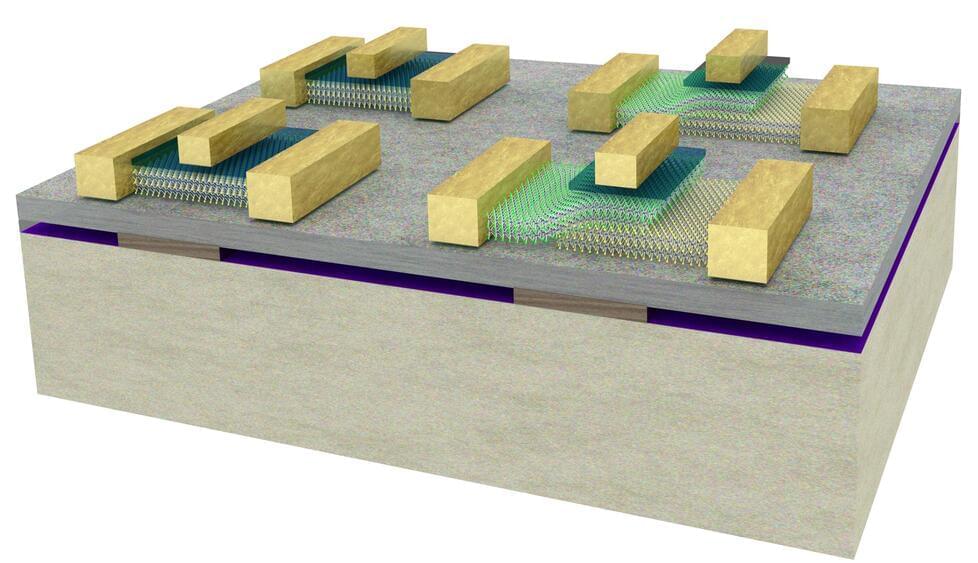
We live in an analog world of continuous information flow that is both processed and stored by our brains at the same time, but our devices process information digitally in the form of discrete binary code, breaking the information into little bits (or bites).
Researchers at EPFL have revealed a pioneering technology that combines the potential of continuous analog processing with the precision of digital devices. By seamlessly integrating ultra-thin, two-dimensional semiconductors with ferroelectric materials, the research, published in Nature Electronics, unveils a novel way to improve energy efficiency and add new functionalities in computing. The new configuration merges traditional digital logic with brain-like analog operations.
The innovation from the Nanoelectronics Device Laboratory (Nanolab), in collaboration with Microsystems Laboratory, revolves around a unique combination of materials leading to brain-inspired functions and advanced electronic switches, including the standout negative capacitance Tunnel Field-Effect Transistor (TFET).